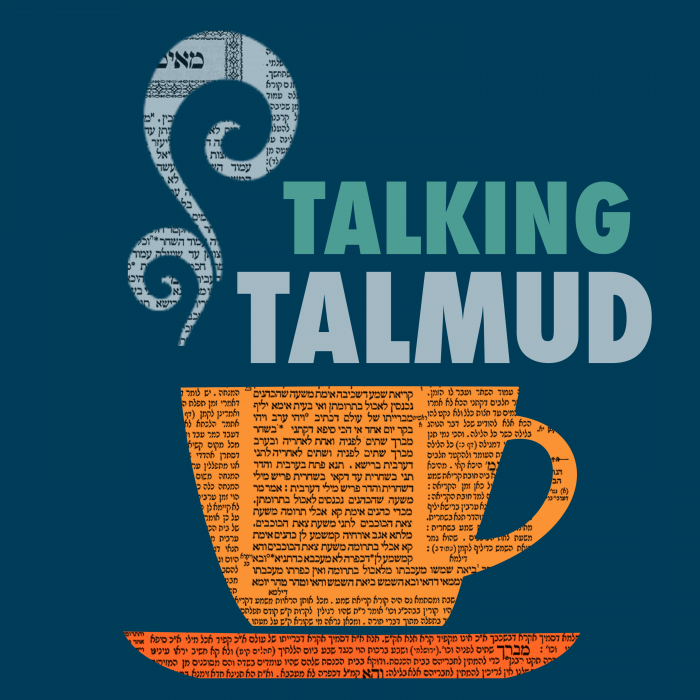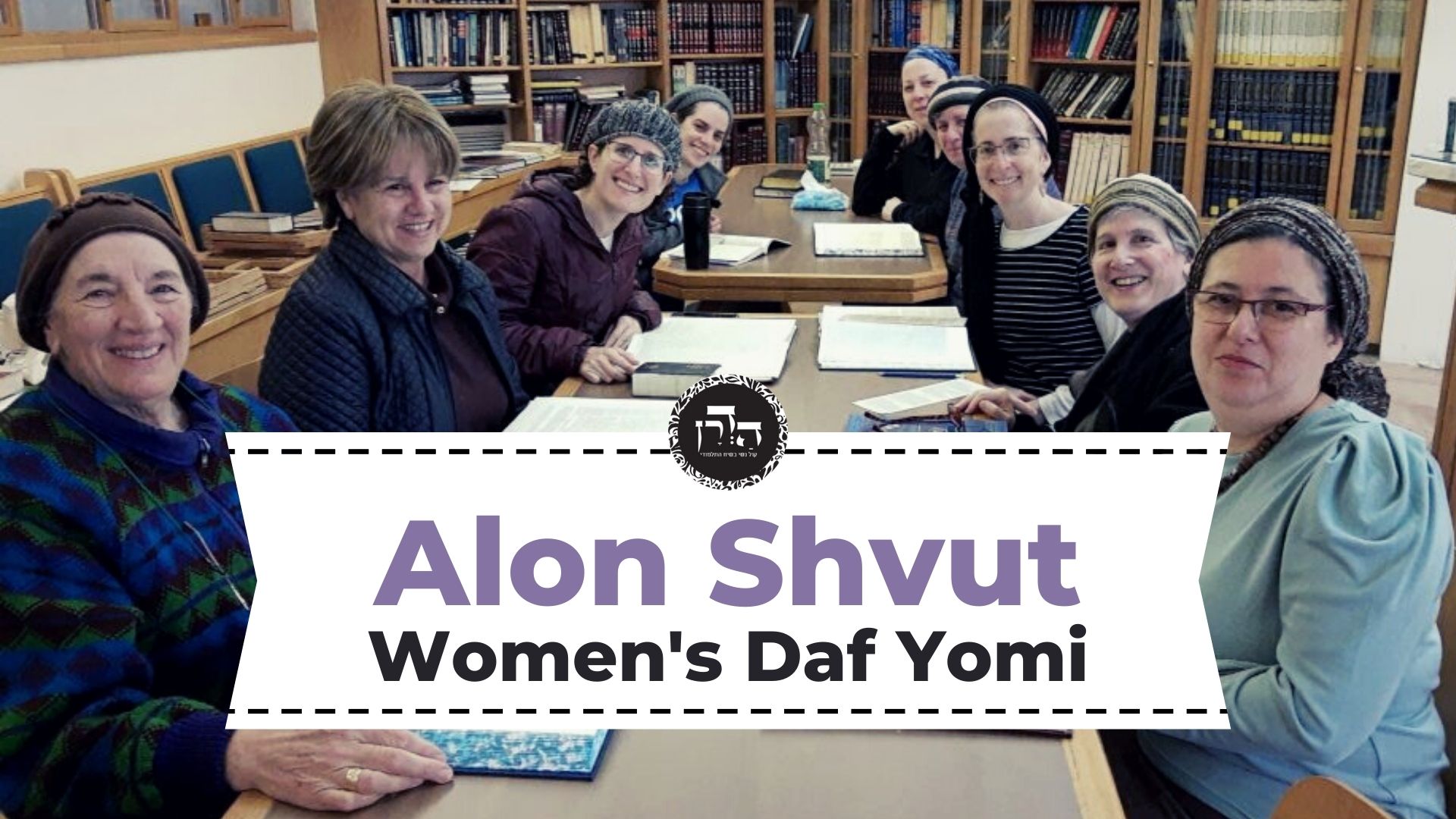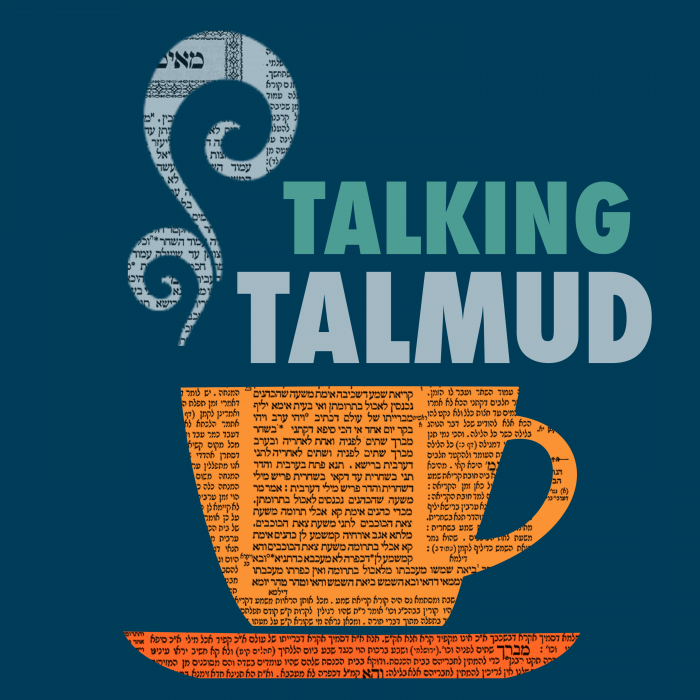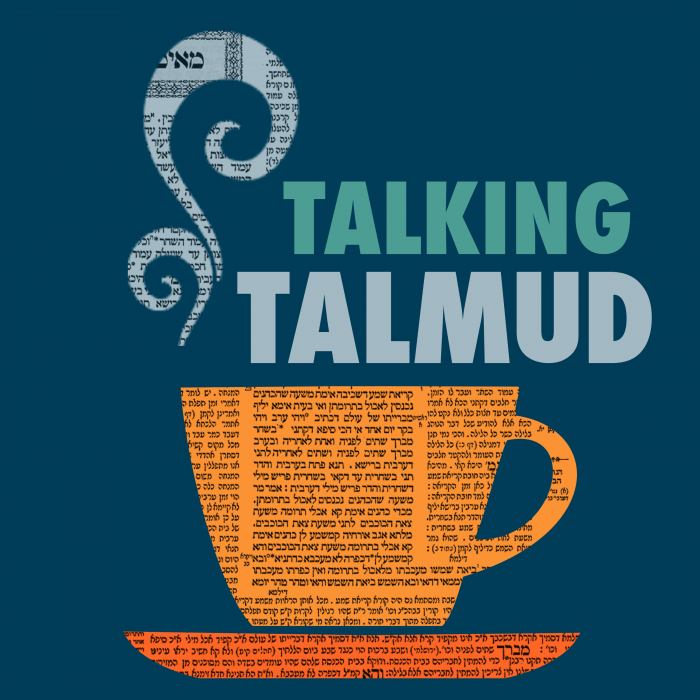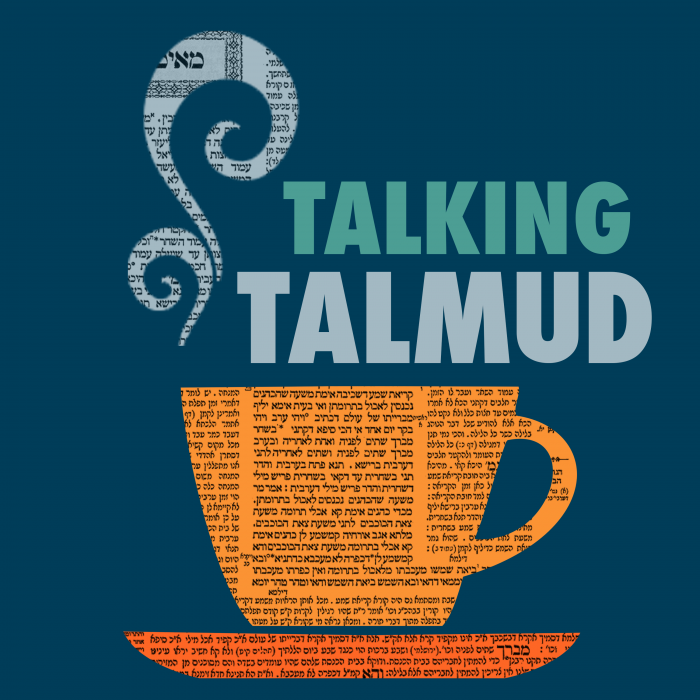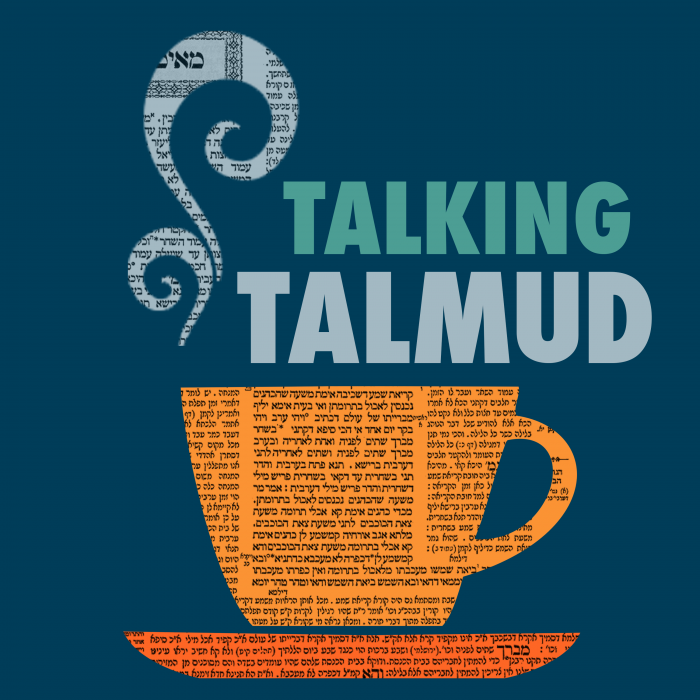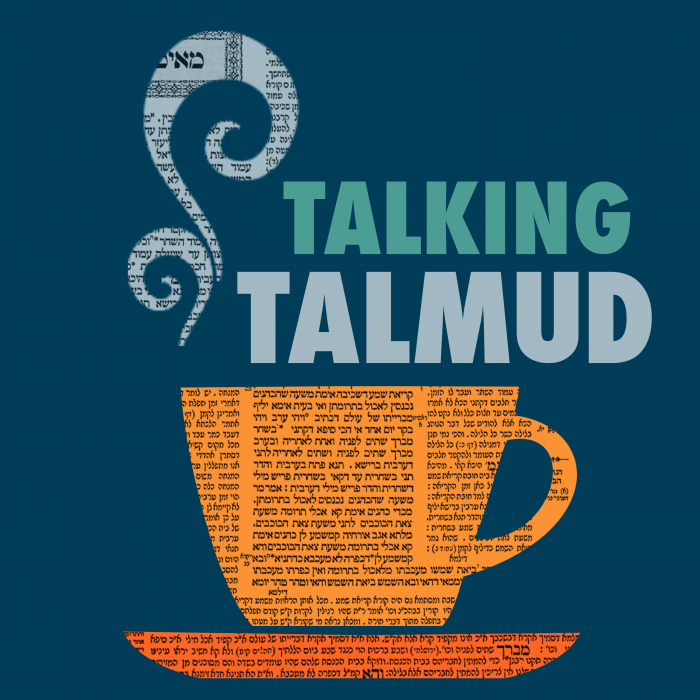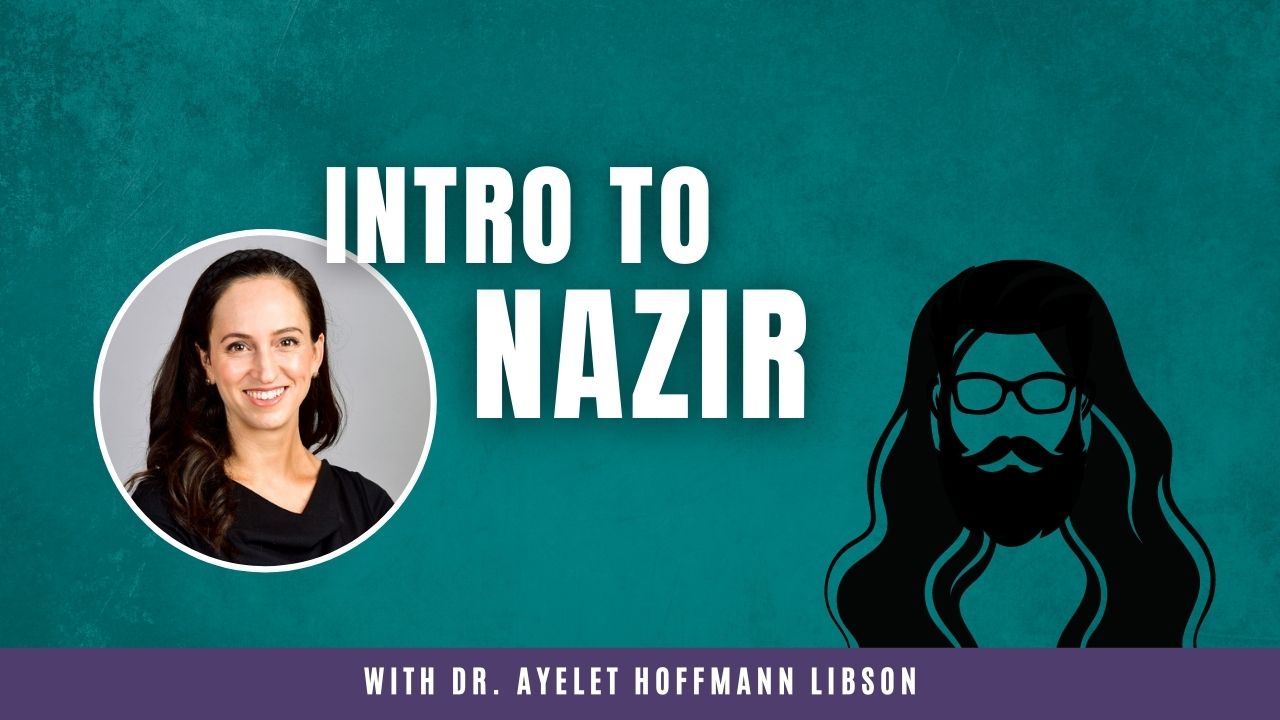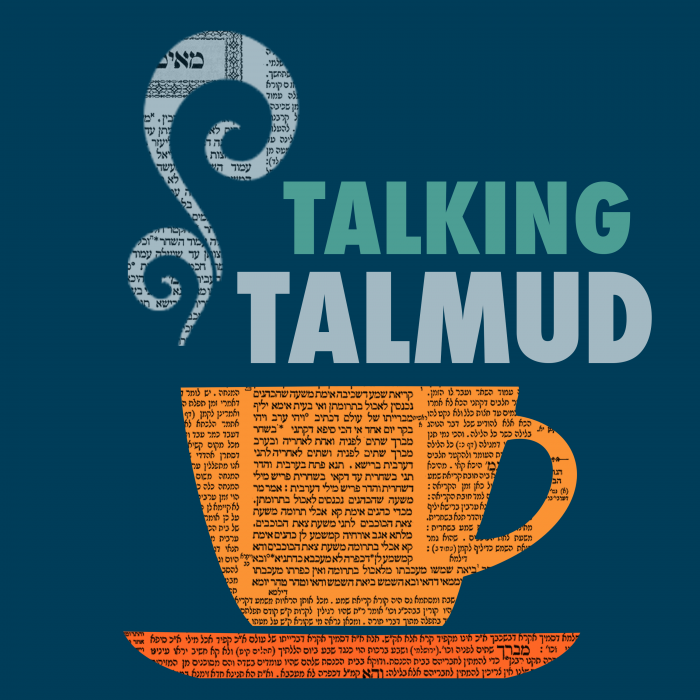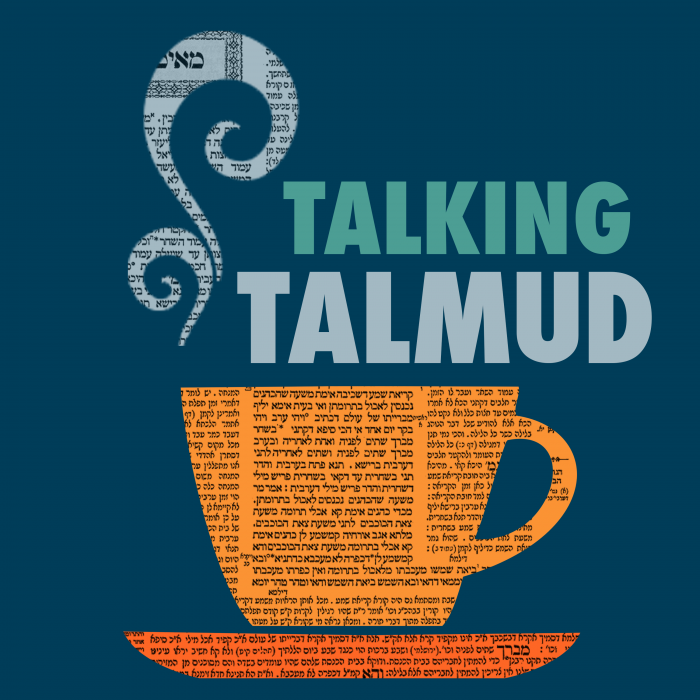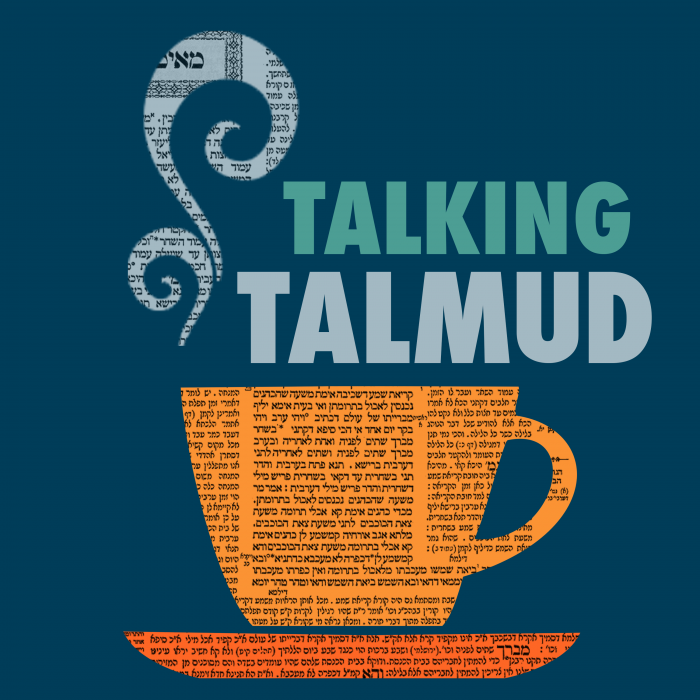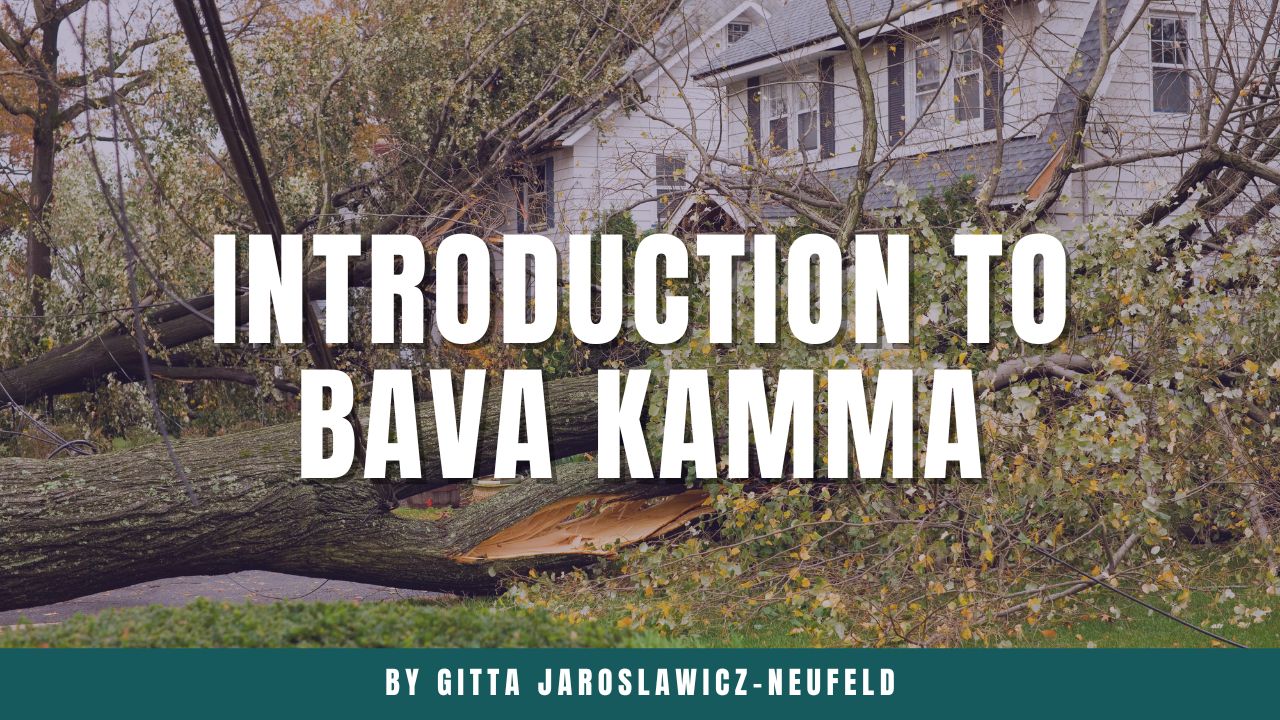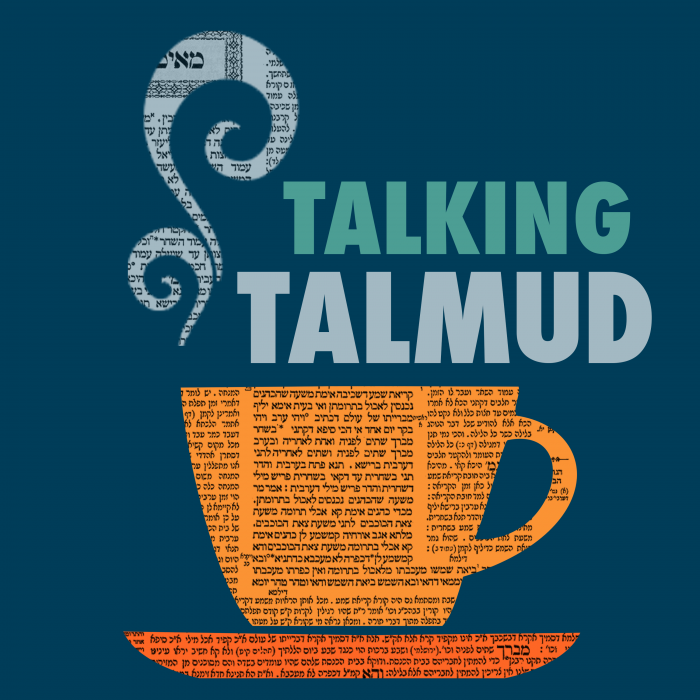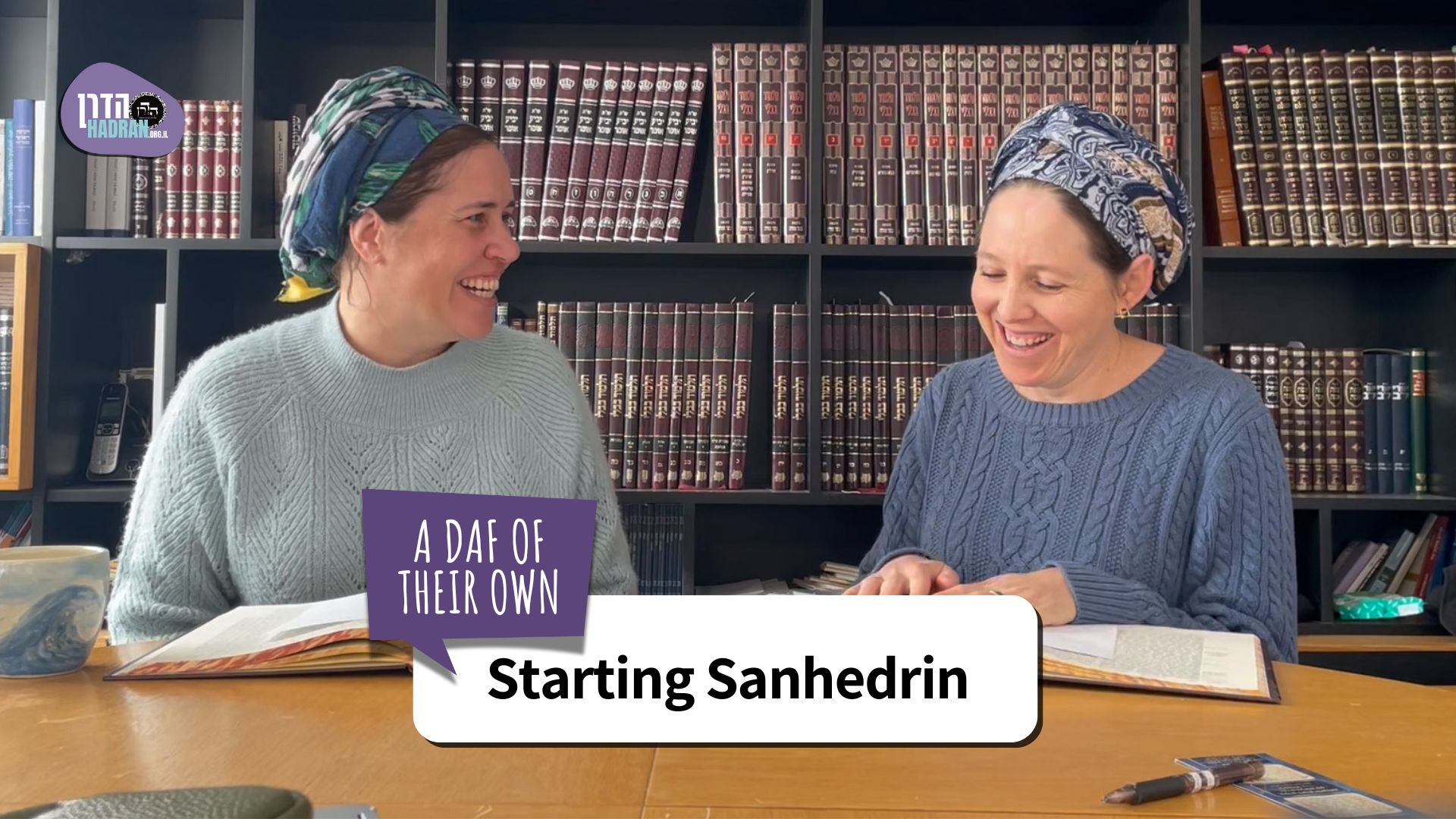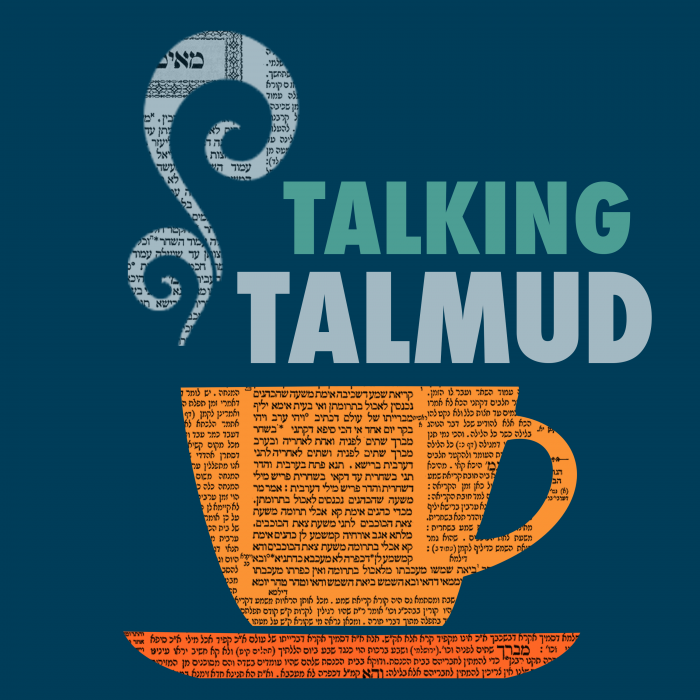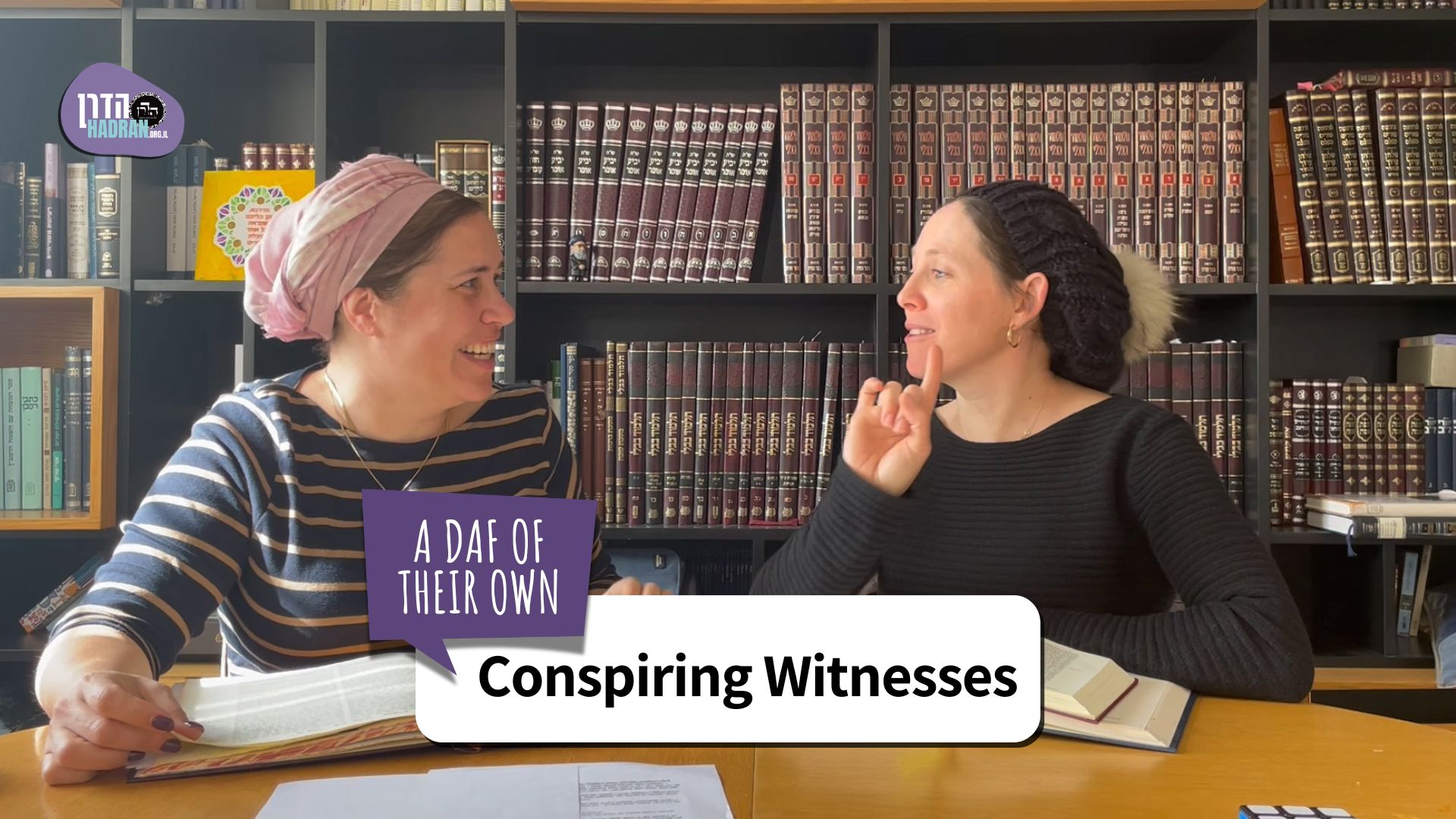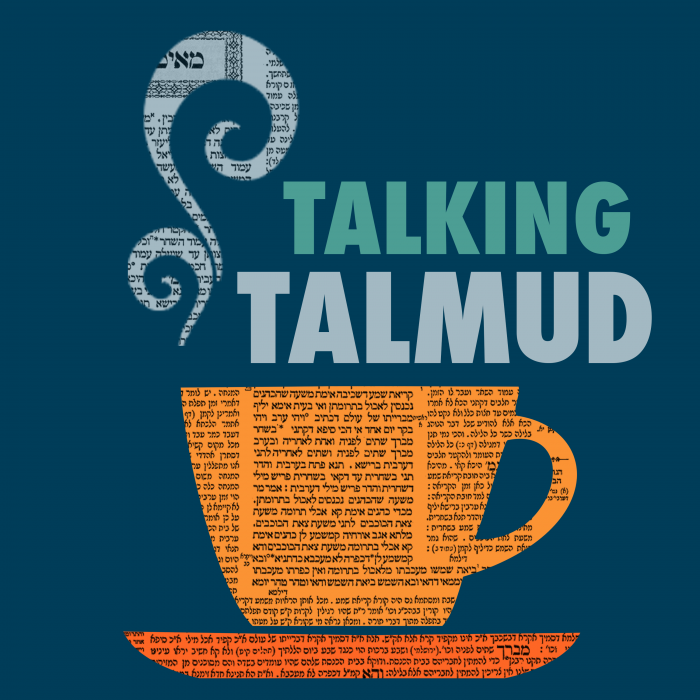This week’s learning is sponsored for the merit and safety of Haymanut (Emuna) Kasau, who was 9 years old when she disappeared from her home in Tzfat two years ago, on the 16th of Adar, 5784 (February 25, 2024), and whose whereabouts remain unknown.
This week’s learning is dedicated of the safety of our nation, the soldiers and citizens of Israel, and for the liberation of the Iranian people. May we soon see the realization of “ליהודים היתה אורה ושמחה וששון ויקר”.
This week’s learning is sponsored for the merit and safety of Haymanut (Emuna) Kasau, who was 9 years old when she disappeared from her home in Tzfat two years ago, on the 16th of Adar, 5784 (February 25, 2024), and whose whereabouts remain unknown.
Want to dedicate learning? Get started here:


Today’s daily daf tools:
This week’s learning is sponsored for the merit and safety of Haymanut (Emuna) Kasau, who was 9 years old when she disappeared from her home in Tzfat two years ago, on the 16th of Adar, 5784 (February 25, 2024), and whose whereabouts remain unknown.
This week’s learning is dedicated of the safety of our nation, the soldiers and citizens of Israel, and for the liberation of the Iranian people. May we soon see the realization of “ליהודים היתה אורה ושמחה וששון ויקר”.
This week’s learning is sponsored for the merit and safety of Haymanut (Emuna) Kasau, who was 9 years old when she disappeared from her home in Tzfat two years ago, on the 16th of Adar, 5784 (February 25, 2024), and whose whereabouts remain unknown.
Today’s daily daf tools:
Delve Deeper
Broaden your understanding of the topics on this daf with classes and podcasts from top women Talmud scholars.
New to Talmud?
Check out our resources designed to help you navigate a page of Talmud – and study at the pace, level and style that fits you.
The Hadran Women’s Tapestry
Meet the diverse women learning Gemara at Hadran and hear their stories.
Keritot 23
אֵין שְׁנַיִם מְבִיאִין אָשָׁם אֶחָד.
Two people do not bring one guilt offering, as one may not sacrifice atonement offerings conditionally.
חֲתִיכַת חֵלֶב וַחֲתִיכַת חוּלִּין, אָכַל אַחַת מֵהֶן וְאֵינוֹ יוֹדֵעַ אֵיזֶה מֵהֶן אָכַל – מֵבִיא אָשָׁם תָּלוּי. אָכַל אֶת הַשְּׁנִיָּה – מֵבִיא חַטָּאת. אָכַל אֶחָד אֶת הָרִאשׁוֹנָה וּבָא אַחֵר וְאָכַל אֶת הַשְּׁנִיָּה – זֶה מֵבִיא אָשָׁם תָּלוּי וְזֶה מֵבִיא אָשָׁם תָּלוּי, דִּבְרֵי רַבִּי עֲקִיבָא. רַבִּי שִׁמְעוֹן אוֹמֵר: שְׁנֵיהֶם מְבִיאִין חַטָּאת אַחַת. רַבִּי יוֹסֵי אוֹמֵר: אֵין שְׁנַיִם מְבִיאִין חַטָּאת אַחַת.
If one had a piece of forbidden fat and a piece of non-sacred meat, and he ate one of them and does not know which of them he ate, he brings a provisional guilt offering, as perhaps he ate the forbidden fat. If he then ate the second piece, he brings a sin offering, as it is certain that he ate the fat. If one person ate the first piece and another person came and ate the second piece, this person brings a provisional guilt offering and that person brings a provisional guilt offering; this is the statement of Rabbi Akiva. Rabbi Shimon says: Both of them bring one sin offering as partners, and they stipulate that the sin offering should be credited to the one who ate the fat. Rabbi Yosei says: Two people do not bring one sin offering.
חֲתִיכַת חֵלֶב וַחֲתִיכַת קוֹדֶשׁ, אָכַל אַחַת מֵהֶן וְאֵינוֹ יוֹדֵעַ אֵיזֶה מֵהֶן אָכַל – מֵבִיא אָשָׁם תָּלוּי. אָכַל אֶת הַשְּׁנִיָּה – מֵבִיא חַטָּאת וְאָשָׁם וַדַּאי. אָכַל אֶחָד אֶת הָרִאשׁוֹנָה וּבָא אַחֵר וְאָכַל אֶת הַשְּׁנִיָּה – זֶה מֵבִיא אָשָׁם תָּלוּי וְזֶה מֵבִיא אָשָׁם תָּלוּי. רַבִּי שִׁמְעוֹן אוֹמֵר: שְׁנֵיהֶן מְבִיאִין חַטָּאת וְאָשָׁם. רַבִּי יוֹסֵי אוֹמֵר: אֵין שְׁנַיִם מְבִיאִין חַטָּאת וְאָשָׁם אֶחָד.
If one had a piece of forbidden fat and a piece of sacrificial permitted fat and he ate one of them and does not know which of them he ate, he brings a provisional guilt offering, as perhaps he ate the forbidden fat. If he then ate the second piece, he brings a sin offering, as he certainly ate the fat, and a definite guilt offering for misuse of consecrated property. If one person ate the first piece and another person came and ate the second piece, this person brings a provisional guilt offering and that person brings a provisional guilt offering. Rabbi Shimon says: Both of them bring a sin offering and a guilt offering as partners, and they stipulate that each offering should be credited to the one who is liable to bring it. Rabbi Yosei says: Two people do not bring one sin offering and one guilt offering.
חֲתִיכַת חֵלֶב וַחֲתִיכַת חֵלֶב קוֹדֶשׁ, אָכַל אַחַת מֵהֶן וְאֵין יוֹדֵעַ אֵיזוֹ מֵהֶן אָכַל – מֵבִיא חַטָּאת, רַבִּי עֲקִיבָא אוֹמֵר: אַף אָשָׁם תָּלוּי. אָכַל אֶת הַשְּׁנִיָּה – מֵבִיא שְׁנֵי חַטָּאוֹת וְאָשָׁם וַדַּאי.
If one had a piece of forbidden fat and a piece of sacrificial forbidden fat and he ate one of them and does not know which of them he ate, he brings a sin offering as he certainly ate forbidden fat. Rabbi Akiva says: He also brings a provisional guilt offering, as perhaps he ate the sacrificial fat, in accordance with his opinion that one brings a provisional guilt offering even in the case of uncertainty with regard to misuse of consecrated property. If he then ate the second piece, he brings two sin offerings, as he ate two pieces of forbidden fat, and a definite guilt offering for misuse of consecrated property.
אָכַל אֶחָד אֶת הָרִאשׁוֹנָה וּבָא אַחֵר וְאָכַל אֶת הַשְּׁנִיָּה – זֶה מֵבִיא חַטָּאת וְזֶה מֵבִיא חַטָּאת. רַבִּי עֲקִיבָא אוֹמֵר: זֶה וָזֶה מְבִיאִין אָשָׁם תָּלוּי. רַבִּי שִׁמְעוֹן אוֹמֵר: זֶה מֵבִיא חַטָּאת וְזֶה מֵבִיא חַטָּאת, וּשְׁנֵיהֶן מְבִיאִין אָשָׁם אֶחָד. רַבִּי יוֹסֵי אוֹמֵר: אֵין שְׁנֵיהֶן מְבִיאִין אָשָׁם אֶחָד.
If one person ate the first piece and another person came and ate the second piece, this person brings a sin offering and that person brings a sin offering. Rabbi Akiva says: This person and that person each bring a provisional guilt offering as well, due to the uncertainty as to which of them ate the sacrificial fat. Rabbi Shimon says: This person brings a sin offering and that person brings a sin offering and both of them bring one guilt offering as partners, and they stipulate that the offering should be credited to the one who ate the sacrificial fat. Rabbi Yosei says: The two of them do not bring one guilt offering.
חֲתִיכַת חֵלֶב וַחֲתִיכַת חֵלֶב נוֹתָר, אָכַל אַחַת מֵהֶן וְאֵין יוֹדֵעַ אֵיזֶה מֵהֶן אָכַל – מֵבִיא חַטָּאת וְאָשָׁם תָּלוּי. אָכַל אֶת הַשְּׁנִיָּה – מֵבִיא שָׁלֹשׁ חַטָּאוֹת.
If one had a piece of forbidden fat and a piece of forbidden fat that is notar, an offering whose designated time has passed for which one is liable to receive karet if he ate it intentionally and liable to bring a sin offering if he ate it unwittingly, and he ate one of them and does not know which of them he ate, he brings a sin offering, as he certainly ate forbidden fat, and a provisional guilt offering, due to the possibility that he ate the notar. If he then ate the second piece, he brings three sin offerings, two for the forbidden fat and one for the prohibition against eating notar.
אָכַל אֶחָד אֶת הָרִאשׁוֹנָה וּבָא אַחֵר וְאָכַל אֶת הַשְּׁנִיָּה – זֶה מֵבִיא חַטָּאת וְאָשָׁם תָּלוּי, וְזֶה מֵבִיא חַטָּאת וְאָשָׁם תָּלוּי. רַבִּי שִׁמְעוֹן אוֹמֵר: זֶה מֵבִיא חַטָּאת וְזֶה מֵבִיא חַטָּאת, וּשְׁנֵיהֶן מְבִיאִין חַטָּאת אַחַת. רַבִּי יוֹסֵי אוֹמֵר: כׇּל חַטָּאת שֶׁהִיא בָּאָה עַל חֵטְא – אֵין שְׁנַיִם מְבִיאִין אוֹתָהּ.
If one person ate the first piece and another person came and ate the second piece, this person brings a sin offering and a provisional guilt offering, as he certainly ate forbidden fat and it is uncertain whether he ate the notar, and that person brings a sin offering and a provisional guilt offering. Rabbi Shimon says: This person brings a sin offering and that person brings a sin offering and both of them bring one additional sin offering as partners, and they stipulate that the offering should be credited to the one who ate the notar. Rabbi Yosei says: Two people do not bring any sin offering that comes as atonement for a sin.
גְּמָ׳ אֲמַר לֵיהּ רָבָא לְרַב נַחְמָן: לְרַבִּי יוֹסֵי, חַטָּאת הוּא דְּלָא מַיְיתוּ שְׁנֵיהֶן, הָא אָשָׁם תָּלוּי מַיְיתוּ שְׁנֵיהֶם? הַיְינוּ תַּנָּא קַמָּא!
GEMARA: The mishna teaches that in a case where there was a piece of forbidden fat and a piece of non-sacred meat and each piece was eaten by a different person, Rabbi Shimon maintains that both of them bring one sin offering by stipulating that the sin offering is credited to the one who ate the fat, whereas Rabbi Yosei says that two people do not bring one sin offering. Rava said to Rav Naḥman: According to Rabbi Yosei, it is apparently a sin offering that they both do not bring, whereas they do both bring a provisional guilt offering. If so, his opinion is the same as that of the first tanna, who explicitly stated that each of them brings a provisional guilt offering.
וְכִי תֵימָא: חֲתִיכָה מִשְׁתֵּי חֲתִיכוֹת אִיכָּא בֵּינַיְיהוּ, וְהָתַנְיָא: רַבִּי יוֹסֵי אוֹמֵר: זֶה מֵבִיא אָשָׁם תָּלוּי וְזֶה מֵבִיא אָשָׁם תָּלוּי! אֲמַר לֵיהּ: הָא קָא מַשְׁמַע לַן, דְּמַאן תַּנָּא קַמָּא – רַבִּי יוֹסֵי.
And if you would say that there is a difference between the opinions of Rabbi Yosei and the first tanna with regard to the requirement of one piece from two pieces, i.e., according to Rabbi Yosei only the first individual is liable to bring a provisional guilt offering, as he had two pieces before him, whereas the second is exempt, since there was only one piece before him when he ate it, this cannot be correct: But isn’t it taught in a baraita that Rabbi Yosei says: This person brings a provisional guilt offering and that person brings a provisional guilt offering. Rav Naḥman said to Rava in response: This is what the mishna teaches us, that who is the first tanna? It is Rabbi Yosei.
חֲתִיכַת חֵלֶב וַחֲתִיכַת קֹדֶשׁ, חֲתִיכַת חֵלֶב וַחֲתִיכַת חֵלֶב קוֹדֶשׁ כּוּ׳ חֲתִיכַת חֵלֶב וַחֲתִיכַת חֵלֶב נוֹתָר כּוּ׳. אֲמַר לֵיהּ רָבָא לְרַב נַחְמָן: וְלַיְתֵי נָמֵי אָשָׁם וַדַּאי, דְּנוֹתָר דְּקֹדֶשׁ הוּא! אֲמַר לֵיהּ: דְּלֵית בֵּיהּ שָׁוֶה פְּרוּטָה.
§ The mishna discusses the case of a piece of forbidden fat and a piece of sacrificial permitted fat, the case of a piece of forbidden fat and a piece of sacrificial forbidden fat, and the case of a piece of forbidden fat and a piece of forbidden fat that is notar. In the final case, if someone ate one of the pieces and then ate the second piece, he brings three sin offerings, two for the forbidden fat and one for the prohibition against eating notar. Rava said to Rav Naḥman: And let him also bring a definite guilt offering for misuse of consecrated property, as notar is sacrificial food. Rav Naḥman said to Rava: This is referring to a case where the piece does not have the value of one peruta, and one is not liable for misusing consecrated property of such little value.
וְהָא מֵעִיקָּרָא דְּאִית בֵּיהּ שָׁוֶה פְּרוּטָה עָסְקִינַן, דְּקָתָנֵי אָשָׁם וַדַּאי! אֲמַר לֵיהּ: הָהִיא חֲתִיכָה דְּלָא נוֹתָר הִיא שָׁוְיָא פְּרוּטָה.
Rava raised a difficulty to Rav Naḥman: But at the outset of the mishna we are dealing with a piece that does have the value of one peruta, as it teaches that if one ate both a piece of forbidden fat and a piece of sacrificial permitted fat, he brings a definite guilt offering for misuse of consecrated property. Rav Naḥman said to Rava: That clause of the mishna is referring to a piece that is not notar, and that piece is worth one peruta. The case of the piece of notar is different. Since it has been left over for a while, most people would not eat it, and it is no longer worth one peruta.
וְהָא יֵשׁ אוֹכֵל אֲכִילָה אַחַת דְּקָתָנֵי בֵּיהּ נוֹתָר, וְקָתָנֵי: מֵבִיא אַרְבַּע חַטָּאוֹת וְאָשָׁם אֶחָד!
Rava raised another difficulty to Rav Naḥman: But the mishna (13b) states: There is a case where one performs one act of eating and is liable for having violated five transgressions, and that mishna teaches that the case is where a ritually impure person ate forbidden fat that was notar from sacrificial meat on Yom Kippur, and it teaches that he brings four sin offerings and one guilt offering. Since the guilt offering is for misusing consecrated property, the piece of meat, which is notar, is evidently worth at least one peruta.
אֲמַר לֵיהּ: הָהִיא – בְּגַסָּה, וְהַהִיא – בְּדַקָּה, וְלָא קַשְׁיָא: הָהִיא – בִּימוֹת הַגְּשָׁמִים, הָכָא – בִּימוֹת הַחַמָּה.
Rav Naḥman said to Rava: That mishna is referring to an act of excessive eating, i.e., to a large piece of meat that is notar, which is worth one peruta, and this mishna here is referring to an act of light eating, i.e., a small piece of meat that is notar, which is not worth one peruta, and therefore it is not difficult. Alternatively, that mishna is referring to notar in the rainy season, when the meat does not spoil so quickly and therefore it is still worth one peruta, and this mishna here is referring to notar in the summer, when it spoils quickly.
אָכַל אֶחָד אֶת הָרִאשׁוֹנָה כּוּ׳. אֲמַר לֵיהּ רָבָא לְרַב נַחְמָן: וּמִי אָמַר רַבִּי שִׁמְעוֹן אִיסּוּר חָל אִיסּוּר?
§ The mishna further teaches with regard to the case of a piece of forbidden fat and a piece of forbidden fat that is notar, that if one person ate the first piece and another ate the second piece, Rabbi Shimon says: Each brings a sin offering for having eaten forbidden fat, and they bring an additional sin offering for the transgression of eating notar, with the stipulation that the offering is credited to the one who ate the notar. Rava said to Rav Naḥman: This indicates that the prohibition of notar takes effect despite the fact that the prohibition of forbidden fat already applied to this piece. And did Rabbi Shimon say that a prohibition takes effect where another prohibition already exists?
וְהָא תַּנְיָא, רַבִּי שִׁמְעוֹן אוֹמֵר: הָאוֹכֵל נְבֵלָה בְּיוֹם הַכִּיפּוּרִים – פָּטוּר!
But isn’t it taught in a baraita that Rabbi Shimon says: One who unwittingly eats an unslaughtered animal carcass on Yom Kippur is exempt from bringing a sin offering for the sin of eating on Yom Kippur because the prohibition against eating on Yom Kippur does not take effect upon the meat of an animal carcass, which is already prohibited?
אָמַר רַב שֵׁשֶׁת בְּרֵיהּ דְּרַב אִידִי: כְּגוֹן דַּאֲכַל כּוּלְיָא בְּחֶלְבָּהּ. וְכוּלְיָא בְּחֶלְבָּהּ נָמֵי, הָא קָאֵי עֲלַהּ בְּאִיסּוּר עוֹלִין, הֵיכִי אָתֵי אִיסּוּר נוֹתָר חָיֵיל עֲלַהּ?
Rav Sheshet, son of Rav Idi, said: The mishna is referring to a case where he ate a kidney with its forbidden fat. Since the kidney is not forbidden fat, the prohibition against eating notar applies with regard to the kidney. The Gemara asks: But even with regard to a kidney with its forbidden fat, the prohibition of items that are supposed to ascend upon the altar applies to it, i.e., it is already forbidden for consumption because it is supposed to be burned on the altar. Consequently, how does the prohibition of notar come and apply to it?
וְכִי תֵימָא: סְבִירָא לֵיהּ לְרַבִּי שִׁמְעוֹן דְּנוֹתָר אִיסּוּר חָמוּר הוּא, וְחָיֵיל עַל אִיסּוּר קַל דְּעוֹלִין, וְהָא נְבֵלָה, דְּאִיסּוּר קַל הוּא, וְיוֹם הַכִּיפּוּרִים, דְּאִיסּוּר חָמוּר הוּא, וְלָא קָאָתֵי אִיסּוּר יוֹם כִּיפּוּרִים דְּחָמוּר וְחָיֵיל עַל נְבֵלָה דְּקַל הוּא!
And if you would say that Rabbi Shimon maintains that notar is a severe prohibition, and therefore it applies where the relatively lenient prohibition of items that are supposed to ascend upon the altar has already taken effect, this cannot be correct. The Gemara explains: But the prohibition of eating an animal carcass is a lenient prohibition, as it is punishable merely by lashes, and eating on Yom Kippur is a severe prohibition, as its violation is punishable by karet; and yet according to Rabbi Shimon the prohibition against eating on Yom Kippur, which is severe, does not come and apply where the prohibition of an animal carcass, which is lenient, has already taken effect.
אֶלָּא: בְּקָדָשִׁים גַּלִּי רַחֲמָנָא דְּאָתֵי אִיסּוּר חָל עַל אִיסּוּר,
Rather, one must say that specifically with regard to sacrificial food the Merciful One revealed that a prohibition takes effect where another prohibition already exists.
דְּתַנְיָא: ״אֲשֶׁר לַה׳״ – לְרַבּוֹת אֶת הָאֵימוּרִין.
As it is taught in a baraita with regard to the prohibition against eating sacrificial meat in a state of ritual impurity: “But the soul that eats from the meat of the sacrifice of peace offerings, which belong to the Lord, having his impurity upon him, that soul shall be cut off from his people” (Leviticus 7:20). The phrase “which belong to the Lord” serves to include in the prohibition of an impure person consuming sacrificial food the sacrificial portions, which are meant to be sacrificed upon the altar and not eaten by other people. One who eats this meat while he is impure is liable to receive karet.
וְאֵימוּרִין קָאֵי עֲלַיְיהוּ בְּאִיסּוּר עוֹלִין, וְחֵלֶב קָאֵי עֲלֵייהּו בְּאִיסּוּר כָּרֵת, וְקָאָתֵי אִיסּוּר טוּמְאָה חָיֵיל עֲלֵיהּ.
The Gemara explains the proof from this baraita: In the case of sacrificial portions, the prohibition of items that are supposed to ascend upon the altar applies to it, and with regard to the parts of the sacrificial portions that are forbidden fat, the prohibition against eating forbidden fat, which is punishable by karet, applies to it. And nevertheless the prohibition of eating sacrificial food in a state of impurity comes and applies in addition to that prohibition. This indicates that with regard to sacrificial meat specifically, a prohibition takes effect where another prohibition already exists.
תֵּדַע שֶׁכֵּן הוּא, דְּהָא רַבִּי סְבִירָא לֵיהּ אִיסּוּר חָל עַל אִיסּוּר, (וְאֵימָא) וְהָנֵי מִילֵּי אִיסּוּר חָמוּר עַל אִיסּוּר קַל, אֲבָל אִיסּוּר קַל חָל עַל אִיסּוּר וְהוּא אִיסּוּר חָמוּר – לָא. וּבְקׇדָשִׁים שָׁמְעִינַן לֵיהּ דְּאָמַר: אִיסּוּר קַל עַל אִיסּוּר חָמוּר נָמֵי חָיֵיל,
The Gemara adds: Know that it is so, as Rabbi Yehuda HaNasi maintains in general that a prohibition takes effect where another prohibition already exists, but this statement applies only with regard to a relatively severe prohibition taking effect where a relatively lenient prohibition already exists. But in the case of a lenient prohibition taking effect where there is already an existing prohibition, and that original prohibition is more severe than the second one, no, Rabbi Yehuda HaNasi does not hold that the second prohibition takes effect. And yet with regard to sacrificial meat, we have heard that Rabbi Yehuda HaNasi says that even a lenient prohibition takes effect where a severe prohibition already exists.
דְּהָא אִיסּוּר מְעִילָה קַל הוּא – מִיתָה, וְאִיסּוּר קָדָשִׁים אִיסּוּר חָמוּר – כָּרֵת, וְאָתֵי אִיסּוּר מִיתָה חָיֵיל עַל אִיסּוּר כָּרֵת.
The Gemara cites the source for this claim: As the prohibition of misuse of consecrated property is a relatively lenient prohibition, since according to Rabbi Yehuda HaNasi it is punishable by death at the hand of Heaven, and the prohibition against eating sacrificial meat is a severe prohibition, since it is punishable by karet,and yet the prohibition punishable by death comes and takes effect where there is already an existing prohibition punishable by karet.
דְּתַנְיָא: רַבִּי אוֹמֵר: ״כׇּל חֵלֶב לַה׳״ – לְרַבּוֹת אֵימוּרֵי קָדָשִׁים קַלִּים לִמְעִילָה.
As it is taught in a baraita that Rabbi Yehuda HaNasi says: It is stated with regard to peace offerings, which are offerings of lesser sanctity: “And the priest shall make them smoke upon the altar; it is the food of the offering made by fire, for a pleasing aroma; all the fat is the Lord’s” (Leviticus 3:16). This verse serves to include the sacrificial portions of offerings of lesser sanctity in the halakha of misuse of consecrated property.
וּמְעִילָה אִיסּוּר מִיתָה, וְקָא חָיֵיל עַל אִיסּוּר חֵלֶב, דְּאִיסּוּר כָּרֵת הוּא, שְׁמַע מִינַּהּ: בְּקָדָשִׁים גַּלִּי קְרָא.
The Gemara comments: And misuse of consecrated property, according to Rabbi Yehuda HaNasi, is a prohibition punishable by death at the hand of Heaven, and yet it takes effect where there is already an existing prohibition of forbidden fat, which is a prohibition punishable by karet. Conclude from this baraita that with regard to sacrificial food, the Merciful One revealed that a prohibition takes effect where another prohibition already exists. As stated above, it is for this reason that Rabbi Shimon states in the mishna that one is liable to bring two sin offerings for eating forbidden fat that is notar.
וְהָא תַּנְיָא, רַבִּי שִׁמְעוֹן אוֹמֵר: אֵין פִּיגּוּל בָּעוֹלִין וְאֵין נוֹתָר בָּעוֹלִין!
The Gemara objects: But isn’t it taught in a baraita that Rabbi Shimon says: The prohibition against eating an offering that was sacrificed with the intent to consume it after its designated time [piggul] does not apply to items that are supposed to ascend onto the altar, and similarly, the prohibition against eating notar does not apply to items that are supposed to ascend onto the altar? This indicates that even with regard to sacrificial meat, a prohibition does not take effect where another prohibition already exists.
אֶלָּא תַּנָּאֵי הִיא, וְאַלִּיבָּא דְּרַבִּי שִׁמְעוֹן, דְּאִיכָּא דְאָמְרִי: בְּקָדָשִׁים אִיסּוּר חָל עַל אִיסּוּר, וְאִיכָּא דְאָמְרִי: בְּקָדָשִׁים נָמֵי אֵין אִיסּוּר חָל עַל אִיסּוּר.
The Gemara suggests: Rather, this matter is a dispute between tanna’im with regard to the opinion of Rabbi Shimon, as some say that Rabbi Shimon maintains that with regard to sacrificial meat a prohibition takes effect where another prohibition already exists, as indicated in the mishna. And some say that even with regard to sacrificial meat, Rabbi Shimon holds that a prohibition does not take effect where another prohibition already exists.
וּלְמַאן דְּאָמַר: בְּקָדָשִׁים נָמֵי אֵין אִיסּוּר חָל עַל אִיסּוּר, ״כׇּל חֵלֶב לַה׳״ מַאי עָבֵיד לֵיהּ?
The Gemara challenges: And according to the one who says that even with regard to sacrificial meat a prohibition does not take effect where another prohibition already exists, what does he do with the verse: “All the fat is the Lord’s” (Leviticus 3:16), from which it was derived above that the sacrificial parts of offerings of lesser sanctity are included in the prohibition of misuse of consecrated property?
מוֹקֵים לֵיהּ בְּוַלְדֵי קָדָשִׁים, דְּקָסָבְרִי: וַלְדֵי קָדָשִׁים – בַּהֲוָיָיתָן יְהוּ קְדוֹשִׁים, דְּתַרְוַיְיהוּ בַּהֲדָדֵי אָתוּ.
The Gemara answers that he interprets it as referring to the offspring of sacrificial animals, as he holds that the offspring of sacrificial animals become sanctified when they begin to exist, i.e., when they are born. Since the prohibition of forbidden fat also takes effect at that time, both of them, i.e., the prohibitions of forbidden fat and misuse of consecrated property, come into effect simultaneously.
הֲדַרַן עֲלָךְ דַּם שְׁחִיטָה
מַתְנִי׳ הַמֵּבִיא אָשָׁם תָּלוּי, וְנוֹדַע לוֹ שֶׁלֹּא חָטָא, אִם עַד שֶׁלֹּא נִשְׁחַט – יֵצֵא וְיִרְעֶה בָּעֵדֶר, דִּבְרֵי רַבִּי מֵאִיר.
MISHNA: In the case of one who brings a provisional guilt offering due to uncertainty as to whether he sinned, and it became known to him that he did not sin, if he made that discovery before the ram was slaughtered, it shall emerge and graze with the flock as a non-sacred animal, since its consecration was in error. This is the statement of Rabbi Meir.
וַחֲכָמִים אוֹמְרִים: יִרְעֶה עַד שֶׁיִּסְתָּאֵב וְיִמָּכֵר וְיִפְּלוּ דָּמָיו לִנְדָבָה. רַבִּי אֱלִיעֶזֶר אוֹמֵר: יִקְרַב, שֶׁאִם אֵינוֹ בָּא עַל חֵטְא זֶה – הֲרֵי הוּא בָּא עַל חֵטְא אַחֵר.
And the Rabbis say: Its status is not that of a non-sacred animal; rather it is that of a guilt offering that was disqualified for sacrifice. Therefore, it shall graze until it becomes blemished; and then it shall be sold, and the money received for it shall be allocated for the purchase of communal gift offerings by the Temple treasury. Rabbi Eliezer says: It shall be sacrificed as a provisional guilt offering, as if it does not come to atone for this sin that he initially thought, it comes to atone for another sin of which he is unaware.
אִם מִשֶּׁנִּשְׁחַט נוֹדַע לוֹ – יִשָּׁפֵךְ הַדָּם, וְהַבָּשָׂר יֵצֵא לְבֵית הַשְּׂרֵיפָה. נִזְרַק הַדָּם וְהַבָּשָׂר קַיָּים – יֵאָכֵל. רַבִּי יוֹסֵי אוֹמֵר: אֲפִילּוּ הַדָּם בַּכּוֹס – יִזָּרֵק, וְהַבָּשָׂר יֵאָכֵל.
If it became known to him that he did not sin after the ram was slaughtered and its blood collected in a container, the blood shall be poured into the canal that flows through the Temple courtyard, and the flesh shall go out to the place of burning, like any disqualified offering. If the blood was sprinkled before he discovered that he did not sin, and the meat is intact, the meat may be eaten by the priests like any other sin offering, as from the moment that its blood was sprinkled the meat is permitted to the priests. Rabbi Yosei says: Even if the blood was still in the cup when he discovered that he did not sin, the blood shall be sprinkled and the meat may be eaten.
אָשָׁם וַדַּאי אֵינוֹ כֵּן, עַד שֶׁלֹּא נִשְׁחַט – יֵצֵא וְיִרְעֶה בָּעֵדֶר. מִשֶּׁנִּשְׁחַט – הֲרֵי זֶה יִקָּבֵר. נִזְרַק הַדָּם – הַבָּשָׂר יֵצֵא לְבֵית הַשְּׂרֵיפָה.
In the case of a definite guilt offering, it is not so, i.e., the halakha is different than with regard to a provisional guilt offering. If he made the discovery that he did not sin before the ram was slaughtered, it shall go out and graze among the flock, as it is not consecrated. If it became known to him that he did not sin after the ram was slaughtered, it shall be buried like a non-sacred animal that was slaughtered in the Temple courtyard, and its blood is poured. If he discovered that he did not sin after the blood was sprinkled, the flesh shall go out to the place of burning, like any disqualified offering.
שׁוֹר הַנִּסְקָל אֵינוֹ כֵּן, עַד שֶׁלֹּא נִסְקָל – יֵצֵא וְיִרְעֶה בָּעֵדֶר. מִשֶּׁנִּסְקַל – מוּתָּר בַּהֲנָאָה.
In the case of an ox that is sentenced to be stoned (see Exodus 21:28–32), e.g., for killing a person, it is not so, i.e., it also does not have the same halakhic status as a provisional guilt offering. If it is discovered that the testimony with regard to the ox was false before it was stoned, it shall go out and graze among the flock as it never had the status of an ox sentenced to be stoned. If this was discovered after the ox was stoned, its halakhic status is as though it had not been sentenced, and therefore deriving benefit from its carcass is permitted.
עֶגְלָה עֲרוּפָה אֵינוֹ כֵּן, עַד שֶׁלֹּא נֶעֶרְפָה – תֵּצֵא וְתִרְעֶה בָּעֵדֶר, מִשֶּׁנֶּעֶרְפָה – תִּקָּבֵר בִּמְקוֹמָהּ, שֶׁעַל סָפֵק בָּאָה מִתְּחִלָּה, כִּיפְּרָה סְפֵקָהּ וְהָלְכָה לָהּ.
In the case of a heifer whose neck is broken, when a corpse is found between two cities and the identity of the murderer is unknown (see Deuteronomy 21:1–9), it is not so i.e., the halakha is different than with regard to a provisional guilt offering. If the identity of the murderer is discovered before the heifer’s neck was broken, it shall go out and graze among the flock, as it is not consecrated. But if the identity of the murderer was discovered after the heifer’s neck was broken, it shall be buried in its place, like any other heifer whose neck is broken. The reason is that from the outset the heifer whose neck is broken comes to atone for a situation of uncertainty. Once its neck was broken before the identity of the murderer was revealed, its mitzva was fulfilled, as it atoned for its uncertainty and that uncertainty is gone.
גְּמָ׳ בְּמַאי פְּלִיגִי? רַבִּי מֵאִיר סָבַר: כֵּיוָן דְּלָא צְרִיךְ לֵיהּ, לָא מַקְדֵּישׁ לֵיהּ. וְרַבָּנַן סָבְרִי: מִתּוֹךְ שֶׁלִּבּוֹ נוֹקְפוֹ, גּוֹמֵר וּמַקְדִּישׁ.
GEMARA: The mishna teaches with regard to one who brings a provisional guilt offering and it became known to him before the ram was slaughtered that he did not sin that Rabbi Meir says the animal is non-sacred and the Rabbis say its status is that of a guilt offering that was disqualified. The Gemara asks: With regard to what do Rabbi Meir and the Rabbis disagree? The Gemara answers that Rabbi Meir holds: He initially consecrated the animal with the intention to sacrifice it. Since later it became clear to him that he does not require the animal, the sanctity is nullified and it is as though he did not consecrate it. And the Rabbis hold: Since initially his heart struck him [nokfo] with pangs of conscience over sins that he might have committed, he wholeheartedly resolved to consecrate the animal, and that sanctity is not nullified.
תָּנָא: בֵּין שֶׁנּוֹדַע לוֹ שֶׁחָטָא וּבֵין נוֹדַע לוֹ שֶׁלֹּא חָטָא פְּלִיגִי רַבִּי מֵאִיר וְרַבָּנַן. בְּנוֹדַע לוֹ שֶׁחָטָא – לְהוֹדִיעֲךָ כֹּחוֹ דְּרַבִּי מֵאִיר, דְּאַף עַל גַּב דְּיָדַע דַּחֲטָא, כֵּיוָן דִּבְעִידָּנָא דְּאַפְרְשֵׁיהּ [לָא יְדַע – תֵּצֵא וְתִרְעֶה בָּעֵדֶר.
A Sage taught in a baraita: Rabbi Meir and the Rabbis disagree whether it became known to him that he sinned, or whether it became known to him that he did not sin. The Gemara elaborates: Their dispute is stated by the baraita in a case where it became known to him that he sinned, in order to convey to you the far-reaching nature of the opinion of Rabbi Meir. As Rabbi Meir maintains that even though he now knows that he sinned and therefore he must bring a sin offering and is no longer obligated to sacrifice the provisional guilt offering, nevertheless, since at the time that he designated the animal as a provisional guilt offering he did not know for certain that he sinned, that animal shall go out and graze among the flock, as it is unconsecrated.
וּבְנוֹדַע לוֹ שֶׁלֹּא חָטָא – לְהוֹדִיעֲךָ כֹּחָן דְּרַבָּנַן, דְּאַף עַל גַּב דְּלָא חֲטָא, כֵּיוָן דִּבְעִידָּנָא דְּאַפְרְשֵׁיהּ לָא יְדַע] – לִבּוֹ נוֹקְפוֹ הֲוָה, הִלְכָּךְ גָּמַר וּמַקְדֵּישׁ.
And similarly, their dispute is stated in a case where it became known to him that he did not sin, in order to convey to you the far-reaching nature of the opinion of the Rabbis. As the Rabbis maintain that even though he now knows that he did not sin, since at the time that he designated the animal as a provisional guilt offering he did not know, his heart struck him with pangs of conscience. Therefore, he wholeheartedly resolved to consecrate the animal.
אָמַר רַב שֵׁשֶׁת: מוֹדֶה רַבִּי מֵאִיר לַחֲכָמִים
Rav Sheshet said: Rabbi Meir concedes to the Rabbis


